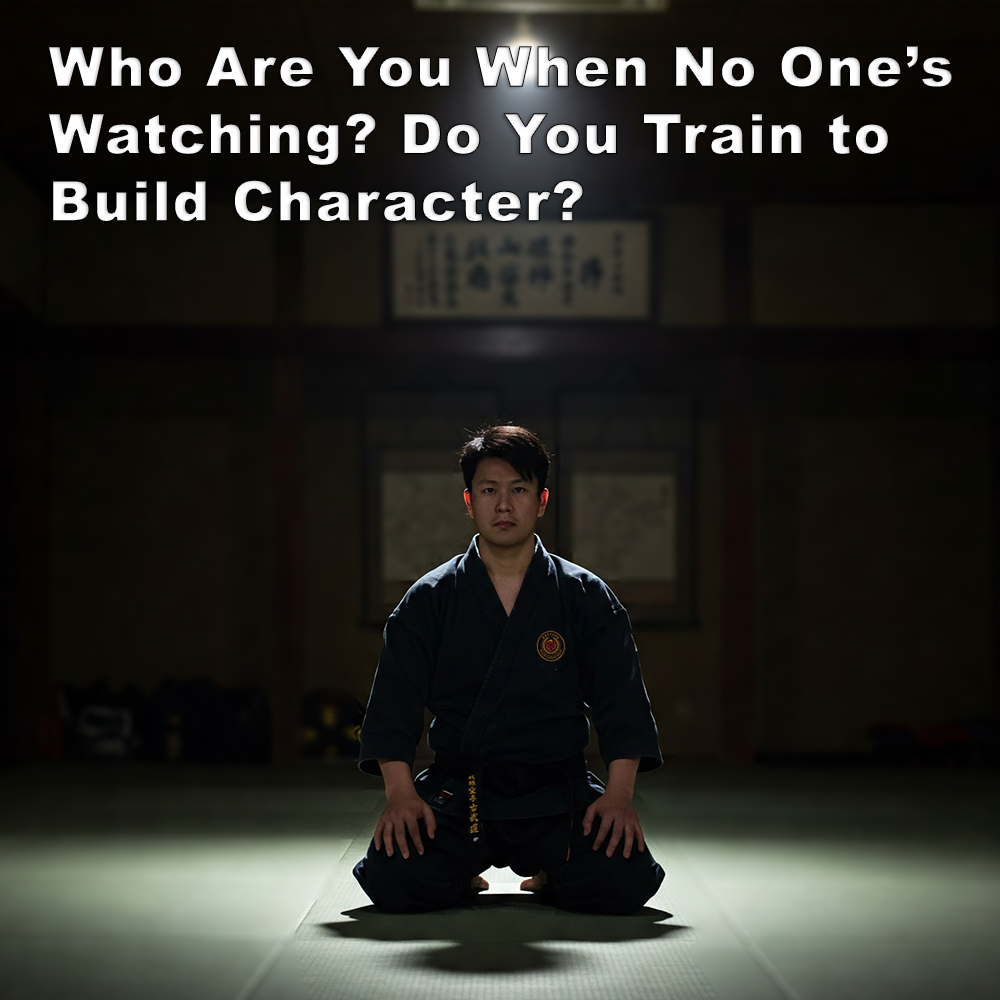
(Approx 2 minute 35 second read)
A recent comment I received said, “Most karate classes are not for self-defense. It’s about the long-term development of your character.”
.
I’m not sure I agree. The majority of dojo today advertise self-defense classes. So which is it – self-defense, self-improvement or something else?
.
It’s sad to think that for many, this attitude – karate for character building – is now seen as its primary purpose. No wonder other disciplines question what we’ve become. For goodness’ sake, let’s apply a bit of common sense.
.
Most people don’t train long enough for their character to change in any meaningful way. You are, for the most part, who you are. Maybe, a few traits may evolve over time, but that’s far from guaranteed.
.
Perhaps some of this stems from a misunderstanding of Gichin Funakoshi’s famous quote: “The ultimate aim of karate lies not in victory or defeat, but in the perfection of the character of its participants.” It’s often repeated, but rarely explored.
.
For many, who may not have experienced karate as truly functional, ‘character building’ becomes the default explanation. It’s easier to hold onto that idea than to confront what might be missing in their training.
.
But Funakoshi wasn’t dismissing the combative nature of karate. His words reflect a deeper truth rooted in Okinawan and Asian martial philosophy – that the practice of something inherently dangerous should be accompanied by a sense of restraint and responsibility.
.
“Character”, in this context, doesn’t mean becoming polite or passive. It means becoming someone who is capable of violence but consciously chooses to control it.
.
True karate demands humility, it asks that we master ourselves even more than we master techniques.
.
I honestly cringe when I receive messages like the one I mentioned. Yes, karate changed in the early 20th century. It became sport, ritual, and ‘tradition’. But must we accept those changes as the only way forward?
.
No – we don’t have to. So if it’s not character-building, what is karate for?
.
Karate can be what you choose to make it. For some of us, it remains what it was originally designed for: civilian self-defense.
.
And why shouldn’t it?
.
Let’s go back to this idea of character for a moment. In an interview, Okinawan master Kiichi Nakamoto said that in pre-war karate, a student had to already have good character to be accepted. It was a prerequisite, not a product of training.
.
That turns the whole idea upside down, doesn’t it?
.
So the real question isn’t whether karate changes you. It’s how you choose to use karate. It comes down to intention. What do you want from it?
.
I often get comments from people who aren’t interested in karate for self-defense. They enjoy the fun, the sport, or the tradition. That’s fine. But I’ll admit, I don’t understand why they feel the need to weigh in on my articles if they’re not on the same page.
.
I digress. No one will learn a lesson that isn’t being taught. If a dojo advertises character-building, self-confidence, or self-discipline, then we should feel free to ask: “How exactly do you teach that?”
.
To be honest, I’ve known many long-time instructors with very questionable character. Years of training doesn’t guarantee anything.
.
So, are you someone of character? Can you do the right thing when no one’s watching – when there’s nothing in it for you?
.
To me, character means being humble. It means living by strong values and doing what’s right, not what’s easy. It means having integrity, practicing self-discipline, being accountable, being honest, and having the intent to act with principle every day.
.
Can karate build all of that? Maybe. But only if it’s taught – and practiced often – with that intent.
.
.
Written by Adam Carter
